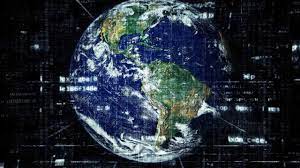


If there was any doubt about India’s stance on the Russia-Ukraine war, Prime Minister Narendra Modi’s interview to the Wall Street Journal should have cleared it. To a question on India’s neutrality on the war, the Prime Minister said that India was not neutral. “We are on the side of peace”, he said. He was also categorical that territorial integrity was sacrosanct. “All countries should respect international law and the sovereignty of countries.” In fact, this has been the Modi government’s stance right from the time the first meeting was called at the United Nations Security Council on 25 February 2022, a day after Russia invaded Ukrainian territory. On that day, at the UNSC, India abstained from voting on the resolution condemning Russia, but made it clear in its statement that “The contemporary global order has been built on the UN Charter, international law, and respect for the sovereignty and territorial integrity of states. All member states need to honour these principles in finding a constructive way forward.” This has been India’s refrain throughout. Add to that the Prime Minister’s statement to Vladimir Putin that this is not the age of war…and where does the question about India’s neutrality pop up, or the oft-made charge that India is siding with Russia? As Prime Minister Modi’s ongoing visit to the US too will make it clear, India sides with India, and its global partnerships too are determined by that factor. India says that this is a policy of multilateralism—or multialignment, as opposed to nonalignment, where India said it was not aligned with anyone, but in reality, was firmly aligned with Soviet Russia. Given the legacy issues involved, it’s but natural that India will try to maintain a robust relationship with Russia. There is history in that relationship, a consequence of which is the dependence on Russian defence materiel. And that is just one aspect of the relationship. India is trying to cut the defence cord, but it will take time. As for the question of Russian oil, if Russian oil is available at a price cheaper than market rates, why wouldn’t India buy it? The survival of 1.4 billion people is at stake here. Also, to shame India for buying it, when China and the Europeans are buying much more, amounts to hypocrisy. Maybe the West can afford to slide into a recession because of runaway inflation, India cannot. Actually even the West cannot. And it is only now, after a year and half that there is grudging acknowledgement internationally that India buying Russian oil was actually a boon for the West, because petroleum products refined in India and shipped to the West, cooled down prices at the pumps, thus preventing a complete meltdown of the Western economies. So India’s Russia relationship has served the West too.
At the same time, Russia lovers in India, and there are many, too need to realise that India has not given a free pass to their beloved friend. Russia is the aggressor in the case of Ukraine. India may not have been vocal against the Russian aggression for its own reasons, but it has been clear that such action is not acceptable. The Prime Minister means it when he says this is not the age of war and that India is on the side of peace. Also, lest the Russia supporters forget, Russia’s dependence on China is making the India-Russia relationship increasingly unviable. Russia is refusing to take payments in rupees, under the rupee-rouble deal. Russia is insisting on payment in Chinese renminbi, which is detrimental to India’s interest. Russia is against India joining the Quad. Worse, there is no guarantee that Russia will be pro India in case of any conflict with China. It will possibly say it is neutral, which is not the right answer as far as India is concerned.
India’s relationship with the US is independent of its relationship with Russia. However, the demands of time are such that the India-US partnership is the story of the future, not India-Russia—even though there may never be a treaty alliance between India and the US, given India’s professed belief in “multilateralism”. But that has not stopped the two most important democracies of the world to try and come closer. India-US relationship is much more than countering China. It is as much strategic and security-oriented, as it’s about business, trade, investments, technology, about India becoming a manufacturing base, about people. If India wants to be a consequential world power, it will need to get closer to the US. India may never say it publicly, but its slow drift from Russia has started. The Biden administration realises this, one of the reasons why it is laying out the red carpet for Prime Minister Modi. This is the early dawn of a new turn in geopolitics, even though many in the American media and think-tank space are busy portraying India as a rogue power standing with Russia. But then they are ignorant about how India functions—silently, with minimum rhetoric, leaving the world to read between the lines.